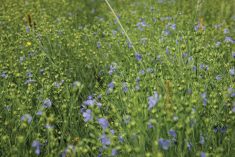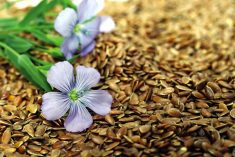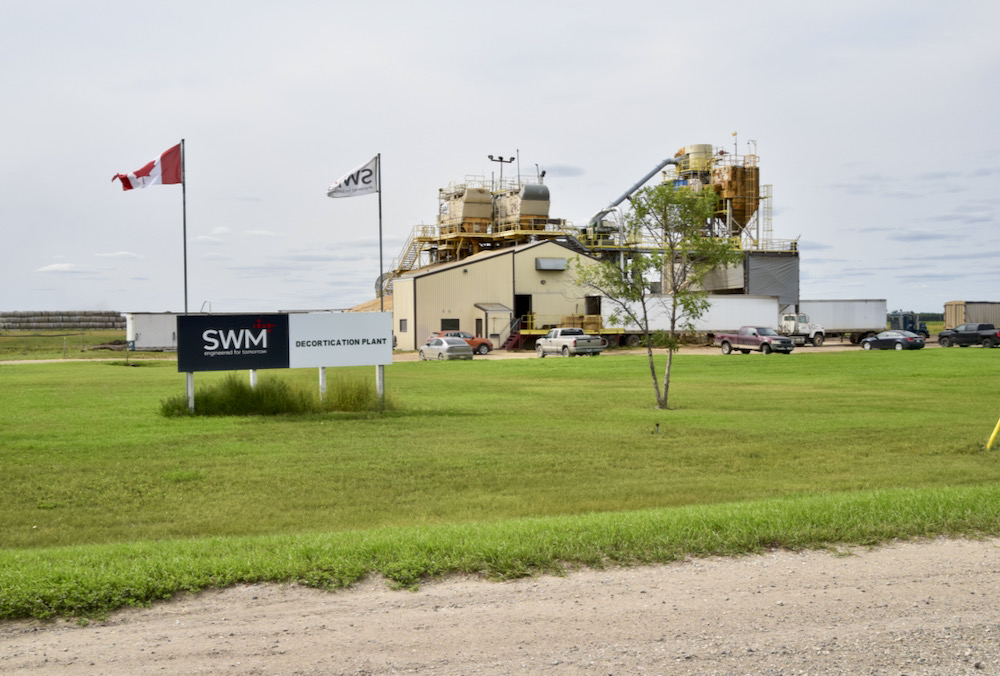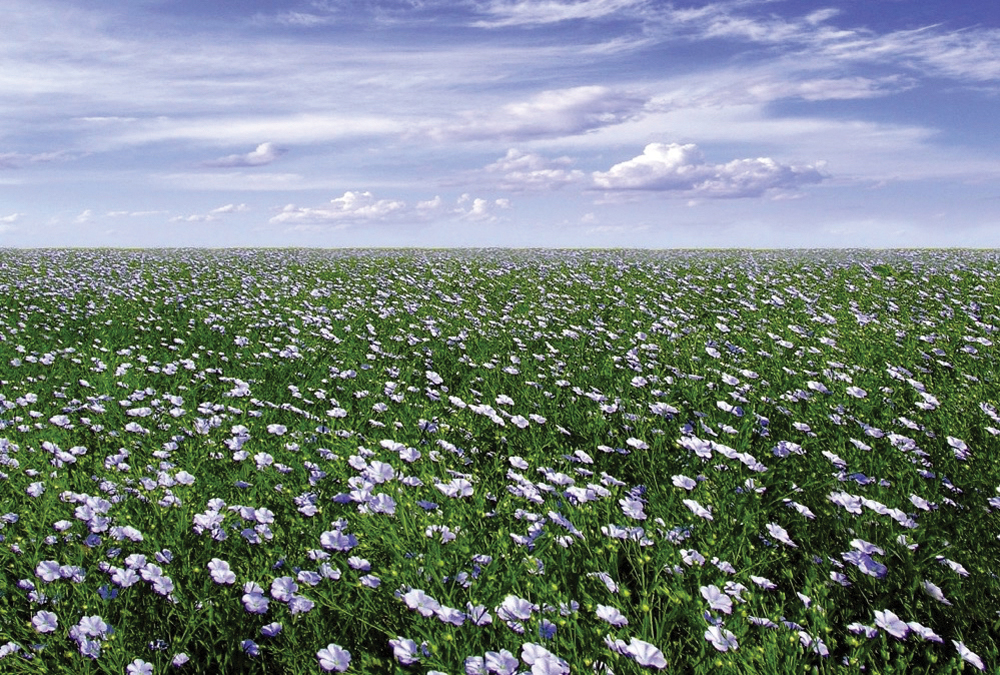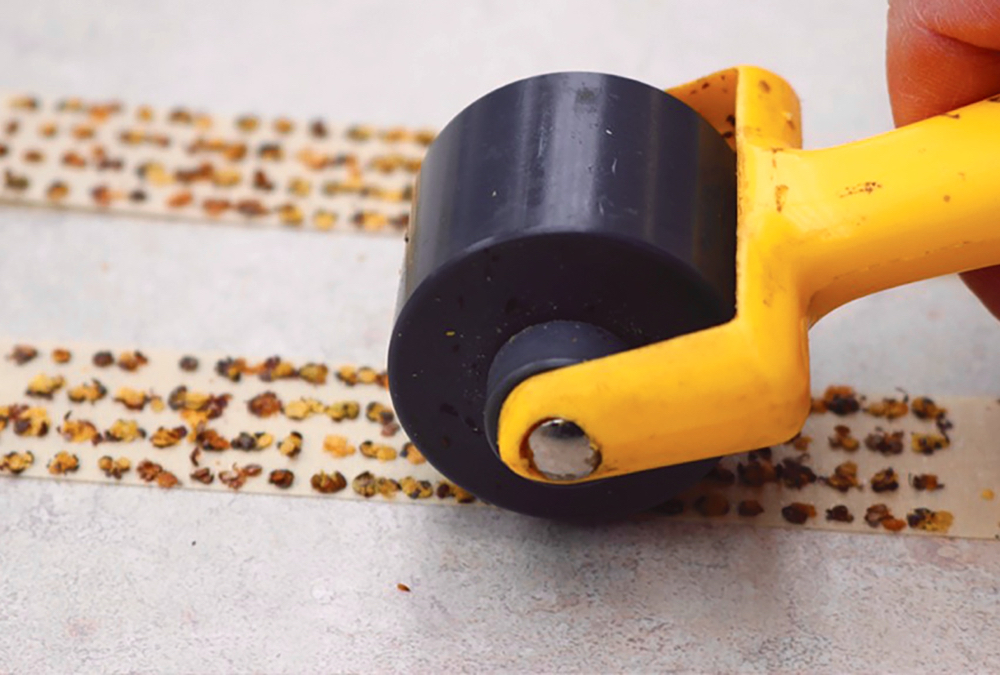Greg Archibald is hoping a $1.12-million investment by two levels of government and Schweitzer-Mauduit will help flax straw “kick the habit” and get out of the smoking business for good.
The vice-president for the Canadian division of Schweitzer-Mauduit International is well aware that for every tonne of flax straw he processes into fibre and shives at the company’s plant just outside of Carman, about five tonnes are left on western Canadian fields.
Because fibrous material takes so long to break down, it often gets burned, creating an environmental and health hazard that antagonizes the town-folk and riles up the provincial regulators.
Read Also

Mazergroup’s Bob Mazer dies
Mazergroup’s Bob Mazer, who helped grow his family’s company into a string of farm equipment dealerships and the main dealer for New Holland machinery in Saskatchewan and Manitoba, died July 6 from cancer.
Meanwhile, virtually all of the flax fibre the plant ships off to the U. S. today is made into cigarette papers – a market that has been declining and which public health officials are trying to make disappear.
Schweitzer-Mauduit doesn’t see much future in that. So in the face of growing demand for products made from renewable and environmentally friendly biomass, it’s rebranding what it produces under the trade name FlaxStalk, and positioning itself to become a world leader in providing “nature fibre solutions.”
“As of today, (cigarette papers) are 100 per cent of our business,” Archibald said in an interview May 21. “If we didn’t do this, we might not be a feasible operation in a few years.”
The possibilities appear endless.
The company currently processes 100,000 tonnes of flax straw annually sourced from Manitoba, Saskatchewan and North Dakota, creating bast
fibre for paper and flax shives for livestock bedding, soil erosion control and biofuel.
A local greenhouse operation and a Hutterite colony have been burning the shives as an inexpensive source of heat in place of natural gas and coal. And a local company has just started work developing a fireplace log made from flax fibre composites.
Flax fibre can also be used in place of fibreglass and other petroleum-based products. The company has developed a line of different fibre and shive blends that can be used for a number of manufacturing applications.
Archibald said he’s receiving calls almost daily inquiring whether his products might have a fit with corporate efforts to “green up” their product lines.
“The pull that’s in the industry of all the natural fibre is just amazing,” he said.
“We’re just moving into all these other businesses. We anticipate that we might be 100 per cent in this business and not in the cigarette business at all.”
The company is using the $385,000 in federal-provincial grants under the Canada-Manitoba Growing Forward Initiative announced last week to expand its Carman location and establish a plant in Winkler that will do further processing. The province has contributed another $100,000 through its Entrepreneurship, Training and Trade Technology Commercialization Program and the National Research Council has provided $150,000.
“With this new equipment, we will be producing a line of renewable, sustainable biomaterials to serve the growing bioeconomy throughout North America,” he said.
Manitoba Agriculture, Food, and Rural Initiatives Minister Stan Struthers said the project offers multiple benefits to the local and provincial economies in addition to being an environmentally friendly solution to dealing with flax straw. “It’s encouraging to see companies challenge the future with new ideas, building value-added products and generating new uses for common byproducts,” he said. He added it is also a good example of how different levels of government work together.
Portage-Lisgar MP Candice Hoeppner, representing federal Agriculture Minister Gerry Ritz, said the company has a proven track record in biofibre processing.
“As a government we’re very confident. We think that what they have done is really indicative of what they will do going forward,” she said.
Archibald said his company’s experience and success in turning biomass into commercial products is what distinguishes it from other failed efforts – notably the former Dow wheat straw-processing facility at Elie.
“We’re very established. We’ve been in business for 50 years with these contacts, these farmers with this network, we know our people, we know our business and we have a standing business that will support us as we move through it,” he said.
That experience may open the door to expanding to fibre processing of other stalks as well, he said. “We’ve been in some discussions with companies about composites,” he said. “We’ve got discussions going on with companies right now.”
He couldn’t quantify however, what the expansion might mean for farmers in the near term. Right now, the company processes 100,000 tonnes of flax straw – 200 to 300 acres’ worth – purchased for $5 per tonne, which roughly equates with the farmers’ cost to burn it.
Western Canada’s flax acres typically range between one million to 1.5 million acres. Archibald said the company’s demand for flax straw will be driven by the demand for fibre, which in turn will increase the availability of shives.
“Probably in September, we’re going to have to make a call, how much are we going to buy for next year,” he said.







